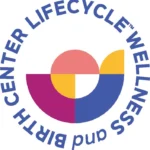August 10, 2015
LWC on Breastfeeding: Main Line Times
There has been much discussion about the health benefits of breastfeeding, but less well known and discussed are the great benefits to our economy. As we work to ensure the most effective implementation of healthcare reform, a key part of the conversation should be reducing costs and creating efficiencies, which breastfeeding can help achieve at the same time as improving family health.
 August is Breastfeeding Awareness Month. It is a great time to examine these many advantages of breastfeeding for society as a whole, and also a time to look for ways that we can create more public support.
August is Breastfeeding Awareness Month. It is a great time to examine these many advantages of breastfeeding for society as a whole, and also a time to look for ways that we can create more public support.
The health benefits of breastfeeding are clear and well-established. Breast milk contains antibodies that help babies fight off viruses and bacteria, and breastfed babies have been shown to have lower risk of asthma or allergies as well as fewer ear infections, respiratory illnesses, and diarrhea. They also have fewer hospitalizations and trips to the doctor, and are less susceptible to obesity, diabetes, and childhood leukemia.
In addition, breastfeeding contributes to a significant bond and close physical contact between mother and child, which leads to positive benefits for both. Once they are back at work, breastfeeding mothers are often less susceptible to postpartum depression, and are less likely to miss work time due to their babies’ illnesses.
Thanks to these and other benefits, according to the U.S. Office on Women’s Health, the U.S. could save $10.5 billion per year if 80% of families breastfed exclusively for six months, and $13 billion each year if those numbers rose to 90 percent of families. This estimate includes costs saved from reduction of illness and consequential medical, hospital, and prescription needs, as well as the reduction of lost wages and saved family expense of formula.
In order to enable women to take advantage of these benefits, we must foster a supportive culture that makes it easier for any woman who wants to breastfeed her infant do so. As a community and in our workplaces, we should provide support and opportunities for breastfeeding mothers to do so as long as possible.
Toward this end, Lifecycle WomanCare (LWC) located in Bryn Mawr provides comprehensive breastfeeding education, support, individual consultation, and support groups that are open to the public. We know that women empowered with an understanding environment and a knowledgeable healthcare system are more successful at breastfeeding, which can be challenging. In fact, more than 90 percent of mothers receiving LWC care or support are still breastfeeding exclusively at six weeks, compared to a national average of 48 percent.
At this important time when we are considering creative new ways to save money while maintaining a healthy population, breastfeeding is a critical addition to our arsenal of approaches. Let’s use Breastfeeding Awareness Month as an opportunity to support and applaud all women who are trying to do what’s best for their child – and reduce our national and family healthcare costs at the same time.
Kathryn Boockvar is an attorney and community leader with an extensive background in public interest law, non-profits, government, and advocacy. As Executive Director of Lifecycle WomanCare (formerly known as The Birth Center) in Bryn Mawr, Boockvar is passionate about expanding access to and providing the highest quality of healthcare to women and families, and being a strong, forceful voice on behalf of the healthcare needs of all families.
By Kathryn Boockvar

